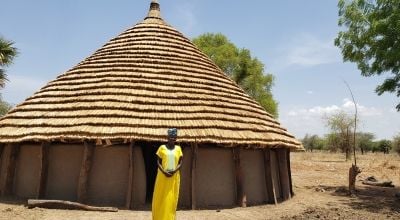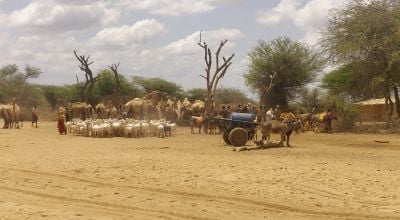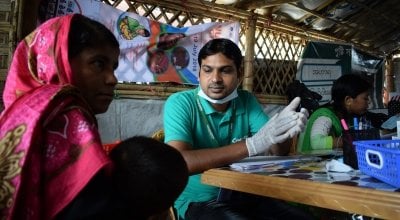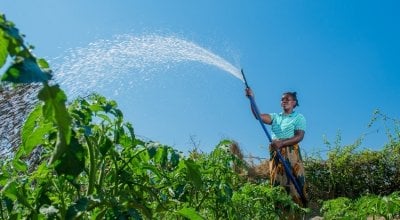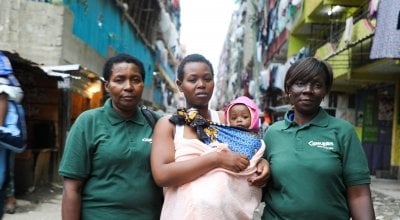
Read our 2023 annual report

Knowledge Hub
Why are we in South Sudan? South Sudan gained independence in July 2011 and has experienced a long history of conflict, displacement, and deepening humanitarian needs. The Human Development Index (HDI) places South Sudan last out of 91 countries and 2.2 million people remain internally displaced. We are responding by providing emergency, resilience, and long-term development programming.
Humanitarian needs keep increasing as donor funding continues to decline
Since March 2024, humanitarian needs in South Sudan have begun to rise higher than projected, largely due to the protracted conflict in Sudan. This has compounded the existing challenges facing South Sudan, including insecurity, violence, displacement, hunger, and severe flooding. It’s also disrupted international trade, and has led to an influx of both refugees and returnees. In January and February 2024 alone, an average of 1,500 to 2,000 individuals crossed into South Sudan every day, bringing the estimated total number of arrivals since April 2023 to over 660,000.
An estimated 9 million people are in need of humanitarian assistance in 2024. The latest Integrated Food Security Phase Classification (IPC) analysis estimates that 7.1 million people — roughly 56% of the population — will face acute food insecurity during this year’s lean season (April to July).

“It’s hard to cope with what you’re seeing because people have nothing. It was two days wandering around the camp before I saw a child with a piece of paper. There are no toys. Nothing.”
Latest achievements
Programme impact
Last year, we reached over 550,000 of some of the poorest and most vulnerable people in South Sudan through health and nutrition, livelihoods, WASH, food security and shelter programmes. 60% of those reached were women.
Emergency response
Health & nutrition
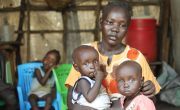
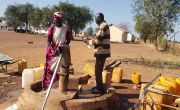
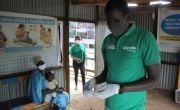
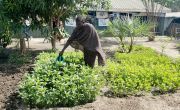
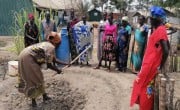
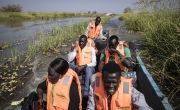
How we're helping South Sudan
We're working hard to respond to the growing needs in South Sudan through emergency programming which includes activities around health, food security, and water sanitation and hygiene.
Latest from South Sudan

Other ways to help
Corporate support
Is your company interested in working together for a common cause?
Fundraise for Concern
From mountain trekking to marathon running, cake sales to table quizzes, there are lots of ways you can support our work.
Buy a gift
With an extensive range of alternative gifts, we have something to suit everybody.
Leave a gift in your will
Leave the world a better place with a life-changing legacy.
Volunteer with Concern
The lots of ways to get involved with our work as a volunteer
School fundraising
Without the generous support from schools, we wouldn't be able to do the work that we do.







